June was a month of conferences and workshops for UnBias. The 3rd UnBias project meeting on June 1st, hosted by our Edinburgh partners this time, was quickly followed by the Ethicomp and EuroDIG conferences which both took place from June 5th to 8th.
All posts by Ansgar Koene
Publication of 1st WP4 workshop report
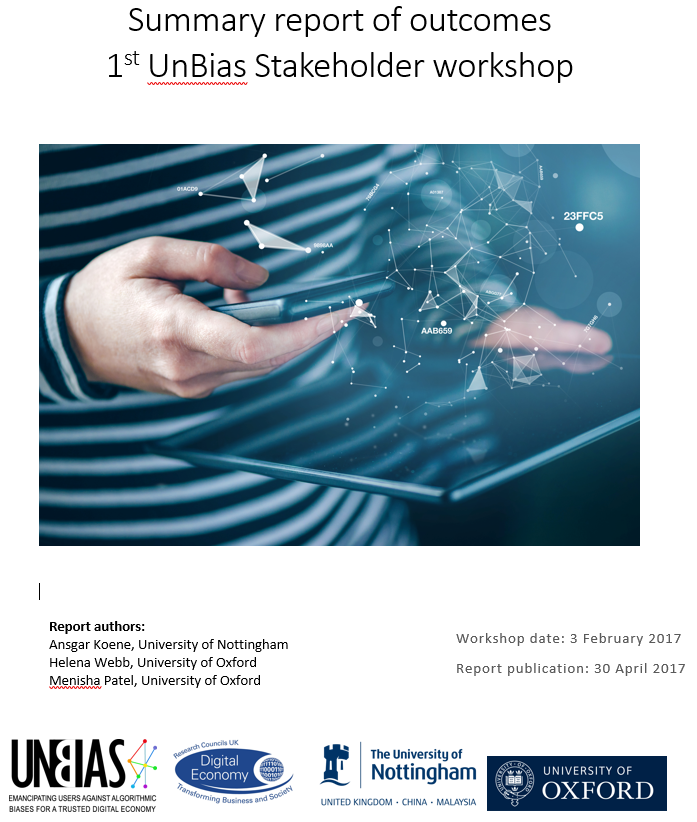
We are please to announce that the report summarizing the outcomes of the first UnBias project stakeholder engagement workshop is now available for public dissemination.
The workshop took place on February 3rd 2017 at the Digital Catapult centre in London, UK. It brought together participants from academia, education, NGOs and enterprises to discuss fairness in relation to algorithmic practice and design. At the heart of the discussion were four case studies highlighting fake news, personalisation, gaming the system, and transparency.
IEEE Standard for Algorithm Bias Considerations

As part of our stakeholder engagement work towards the development of algorithm design and regulation recommendations UnBias is engaging with the IEEE Global Initiative for Ethical Considerations in Artificial Intelligence and Autonomous Systems to develop an IEEE Standard for Algorithm Bias Considerations, designated P7003. The P7003 working group is chaired by Ansgar Koene and will have its first web-meeting on May 5th 2017.
Continue reading IEEE Standard for Algorithm Bias Considerations
UnBias public engagement at the Explorers Fair

On February 10th and 11th, UnBias participated in the 2017 Explorers Fair Expo at the Nottingham Broadway cinema to engage with parent, children and citizens of any age in discussing the ways in which algorithms affect our lives.
Continue reading UnBias public engagement at the Explorers Fair
2016, an eventful year for algorithms

For algorithm based systems, as with many other topics, 2016 turned out to be an eventful year. As we close the year and look back on events, the course of 2016 brought many of the issues we intend to address in the UnBias project to the attention of people and organizations who previously perhaps had not considered these things before.
UnBias engagement with Ethics and Law communities
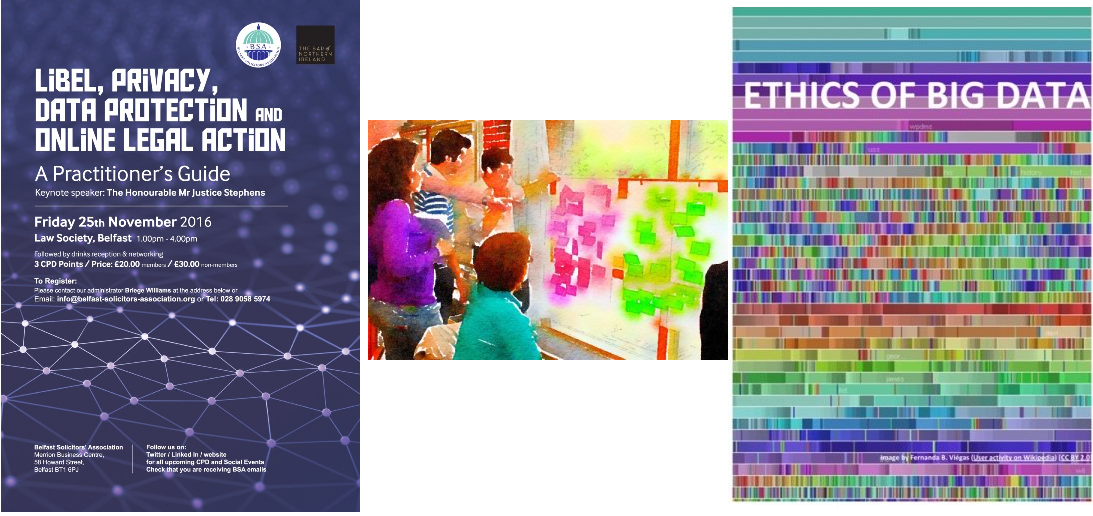 From Thursday 24th to Monday 28th November, the Nottingham UnBias team contributed to series of workshop/CPD events organized by the SATORI project, the Belfast Solicitors’ Association (“BSA”) and the Ethics of Big Data working group at the University of Cambridge.
From Thursday 24th to Monday 28th November, the Nottingham UnBias team contributed to series of workshop/CPD events organized by the SATORI project, the Belfast Solicitors’ Association (“BSA”) and the Ethics of Big Data working group at the University of Cambridge.
Continue reading UnBias engagement with Ethics and Law communities
Algorithms Transparency and Accountability in the Digital Economy event at the European Parliament
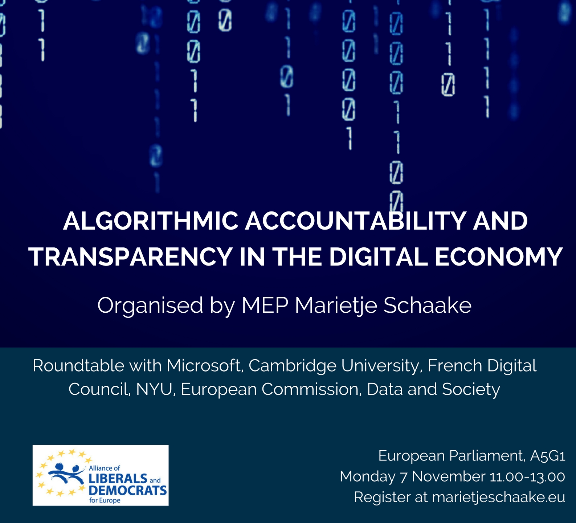 On November 7th I attended the Algorithms Transparency and Accountability in the Digital Economy roundtable event that was organized by MEP Marietje Schaake for the purpose of “discussing which options the European Union has to improve the accountability and/or the transparency of the algorithms that underpin many business models and platforms in the digital single market.”
On November 7th I attended the Algorithms Transparency and Accountability in the Digital Economy roundtable event that was organized by MEP Marietje Schaake for the purpose of “discussing which options the European Union has to improve the accountability and/or the transparency of the algorithms that underpin many business models and platforms in the digital single market.”
Invitation to participate in stakeholder engagement workshops
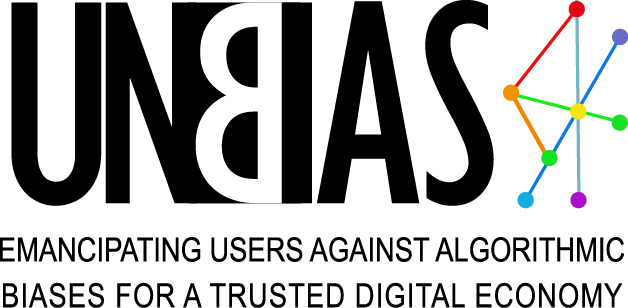 We invite stakeholders from academia, education, government/regulatory oversight organizations, civil society, media, industry and entrepreneurs to contribute to our ongoing research study by taking part in a small number of stakeholder engagement workshops. These workshops will explore the implications of algorithm-mediated interactions on online platforms. They provide an opportunity for relevant stakeholders to put forward their perspectives and discuss the ways in which algorithms shape online behaviours, in particular in relation to access and the dissemination of information to users. The workshops will provide an excellent opportunity for participants to exchange ideas and explore solutions with perspectives from a wide range of stakeholders. Following each workshop the participants will receive an anonymized report of the outcomes, which will contribute to the production of policy recommendations as well as the design of a ‘fairness toolkit’ for users, online providers and other stakeholders.
We invite stakeholders from academia, education, government/regulatory oversight organizations, civil society, media, industry and entrepreneurs to contribute to our ongoing research study by taking part in a small number of stakeholder engagement workshops. These workshops will explore the implications of algorithm-mediated interactions on online platforms. They provide an opportunity for relevant stakeholders to put forward their perspectives and discuss the ways in which algorithms shape online behaviours, in particular in relation to access and the dissemination of information to users. The workshops will provide an excellent opportunity for participants to exchange ideas and explore solutions with perspectives from a wide range of stakeholders. Following each workshop the participants will receive an anonymized report of the outcomes, which will contribute to the production of policy recommendations as well as the design of a ‘fairness toolkit’ for users, online providers and other stakeholders.
Further information and details about the workshops is available at the WP4 Invitation for stakeholder engagement page.
Official press release to announce the start of the project
Courtesy of the University of Nottingham Press-office, the UnBias project sent out a press release to notify about the launch of our project. The press-release was picked up by ScienceDaily, AlphaGalileo and Eurekalert among others. The full text of the press-release is reproduced below.
Continue reading Official press release to announce the start of the project
News, algorithms bias and editorial responsibility
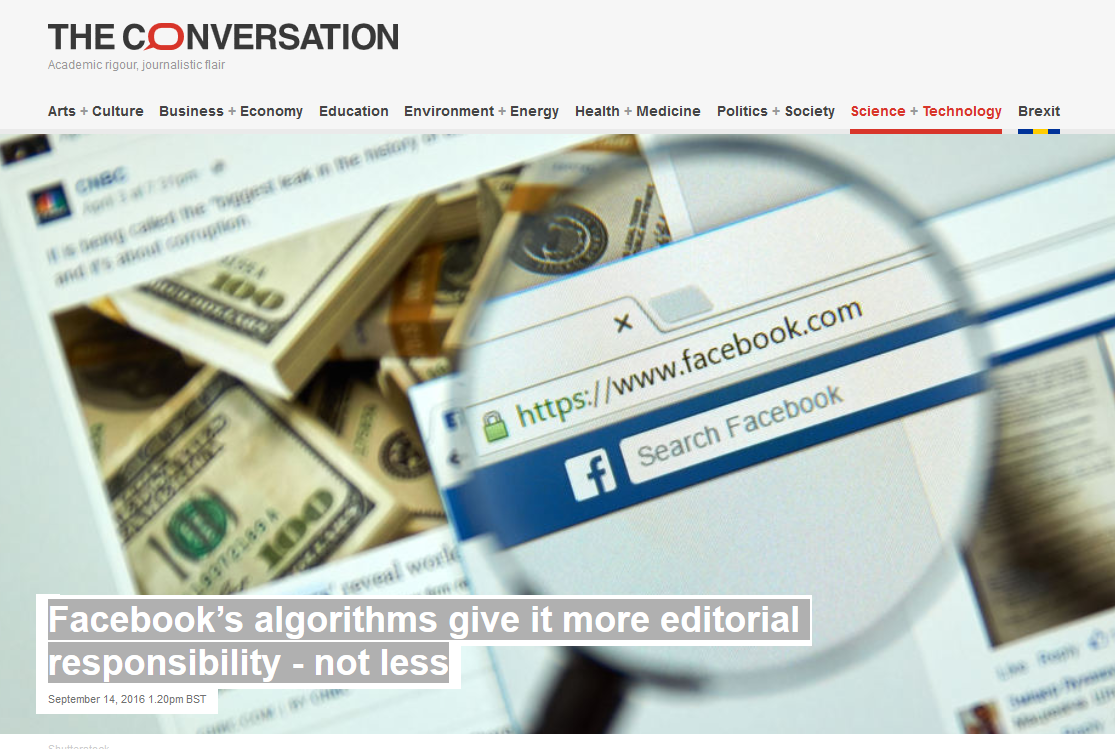 In an almost suspiciously conspiracy-like fashion the official launch of UnBias at the start of September was immediately accompanied by a series of news articles providing examples of problems with algorithms that are making recommendations or controlling the flow of information. Cases like the unintentional racial bias in a machine learning based beauty contest algorithm, meant to remove bias of human judges; a series of embarrassing news recommendations on the Facebook trending topics feed, as a results of an attempt to avoid (appearance of) bias by getting rid of human editors; and controversy about Facebook’s automated editorial decision to remove the Pulitzer prize-winning “napalm girl” photograph because the image was identifies as containing nudity. My view of these events? “Facebook’s algorithms give it more editorial responsibility – not less“ (published today in the Conversation).
In an almost suspiciously conspiracy-like fashion the official launch of UnBias at the start of September was immediately accompanied by a series of news articles providing examples of problems with algorithms that are making recommendations or controlling the flow of information. Cases like the unintentional racial bias in a machine learning based beauty contest algorithm, meant to remove bias of human judges; a series of embarrassing news recommendations on the Facebook trending topics feed, as a results of an attempt to avoid (appearance of) bias by getting rid of human editors; and controversy about Facebook’s automated editorial decision to remove the Pulitzer prize-winning “napalm girl” photograph because the image was identifies as containing nudity. My view of these events? “Facebook’s algorithms give it more editorial responsibility – not less“ (published today in the Conversation).
